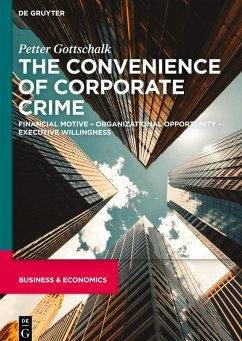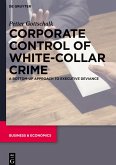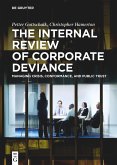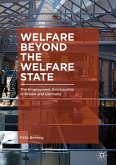As documented in a number of case studies (from Telia Telecom in Sweden to Wirecard in Germany) in this book, recidivism seems to be of a substantial magnitude in corporate crime. Corporations tend to repeat white-collar offenses such as financial crime and environmental crime in various forms as long as they find it convenient. A minor fine from time to time and dismissal of some executives as scapegoats do not prevent corporations from committing and concealing new offenses as long as there is a convenient financial motive, a convenient organizational opportunity, and a convenient willingness for deviant behavior. Businesses and their executives tend to be recidivists who get away with light punishment in most jurisdictions.
The relevant audiences for this book include law students, business students, sociology students, and criminology students. Fraud examiners, defense attorneys, compliance officers, police investigators, as well as prosecutors can find the structural model of convenience to be an ideal template in preparing corporate crime case narratives.
Hinweis: Dieser Artikel kann nur an eine deutsche Lieferadresse ausgeliefert werden.
The relevant audiences for this book include law students, business students, sociology students, and criminology students. Fraud examiners, defense attorneys, compliance officers, police investigators, as well as prosecutors can find the structural model of convenience to be an ideal template in preparing corporate crime case narratives.
Hinweis: Dieser Artikel kann nur an eine deutsche Lieferadresse ausgeliefert werden.








